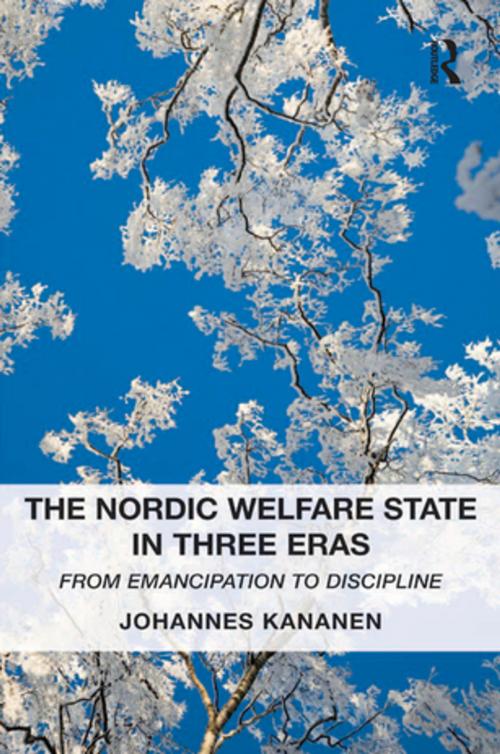The Nordic Welfare State in Three Eras
From Emancipation to Discipline
Nonfiction, Social & Cultural Studies, Political Science, Politics, Social Services & Welfare, Business & Finance, Economics, Economic Conditions| Author: | Johannes Kananen | ISBN: | 9781317022565 |
| Publisher: | Taylor and Francis | Publication: | February 17, 2016 |
| Imprint: | Routledge | Language: | English |
| Author: | Johannes Kananen |
| ISBN: | 9781317022565 |
| Publisher: | Taylor and Francis |
| Publication: | February 17, 2016 |
| Imprint: | Routledge |
| Language: | English |
Nordic welfare states are known for a unique combination of equity and efficiency and for political institutions facilitating compromise and consensus between conflicting interests. The Nordic Welfare State in Three Eras: From Emancipation to Discipline analyses the historical and contemporary evolution of Nordic welfare states in Denmark, Sweden and Finland during three periods: the developmental period until the end of WWII, the period of emancipatory welfare institutions until the 1980s, and the period of restructuring from the 1980s until present times. The three eras discussed are shared in one way or another by all welfare states. However, Nordic welfare institutions are unique in the sense that they were particularly compatible with the ideas of Keynesian macro-economic management that constituted the blueprint of international economic ideas during the post-war period. This ground-breaking book will show how preceding emancipating elements of Nordic welfare states were largely lost in the process of renegotiating the post-war social order, and replaced by new elements of discipline and control.
Nordic welfare states are known for a unique combination of equity and efficiency and for political institutions facilitating compromise and consensus between conflicting interests. The Nordic Welfare State in Three Eras: From Emancipation to Discipline analyses the historical and contemporary evolution of Nordic welfare states in Denmark, Sweden and Finland during three periods: the developmental period until the end of WWII, the period of emancipatory welfare institutions until the 1980s, and the period of restructuring from the 1980s until present times. The three eras discussed are shared in one way or another by all welfare states. However, Nordic welfare institutions are unique in the sense that they were particularly compatible with the ideas of Keynesian macro-economic management that constituted the blueprint of international economic ideas during the post-war period. This ground-breaking book will show how preceding emancipating elements of Nordic welfare states were largely lost in the process of renegotiating the post-war social order, and replaced by new elements of discipline and control.















